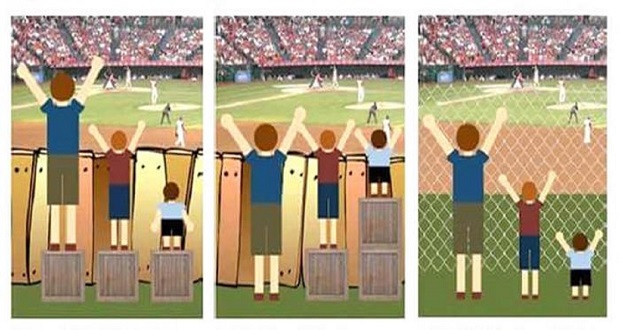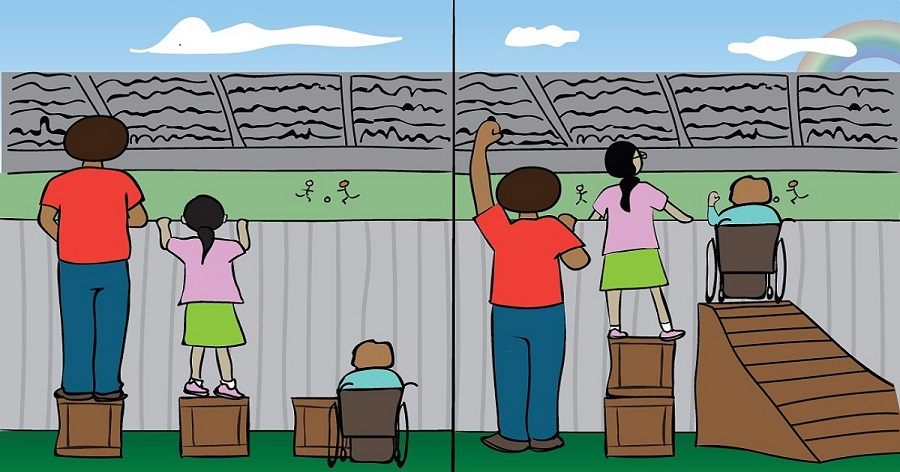Join the McGill Accessibility Strategy Town Hall online, on Friday, February 20, 2026.
Equity
Equity, unlike the notion of equality, is not about sameness of treatment. Equity denotes fairness and justice in process and in results. Equitable outcomes often require differential treatment and resource redistribution so as to achieve a level playing field among all individuals and communities. This requires recognizing and addressing barriers to to provide opportunity for all individuals and communities to thrive in our University environment. Several variations on the images shown below are sometimes used to illustrate the meaning and implications of equity.


Diversity
Diversity describes the presence of difference within any collection of people. In discussions of social equity, diversity addresses differences in social group membership related, for example, to race, Indigenous identity, class, gender identity or expression, sexuality, ability, ethnicity, and religion. Discussions about diversity linked to access and equity require knowledge and understanding of historical and contemporary experiences of oppression and exclusion.
It’s important to think of diversity as uniting rather than dividing. Diversity means appreciating our differences but also our interconnectedness, recognizing systemic and institutionalized discrimination, and building relationships across our differences. That can be challenging, but it’s worth it. While appreciating social difference is important, a commitment to diversity should prompt us also to acknowledge all the things that connect us.
Inclusion
Inclusion refers to the notion of belonging, feeling welcome, having a sense of citizenship, and the capacity to engage and succeed in a given institution, program, or setting. Inclusion calls for recognizing, reducing, and removing barriers to participation and belonging, sometimes entailing the change or reimagination of such institutions, programs, or settings. Inclusion means welcoming and valuing all members of our University community.